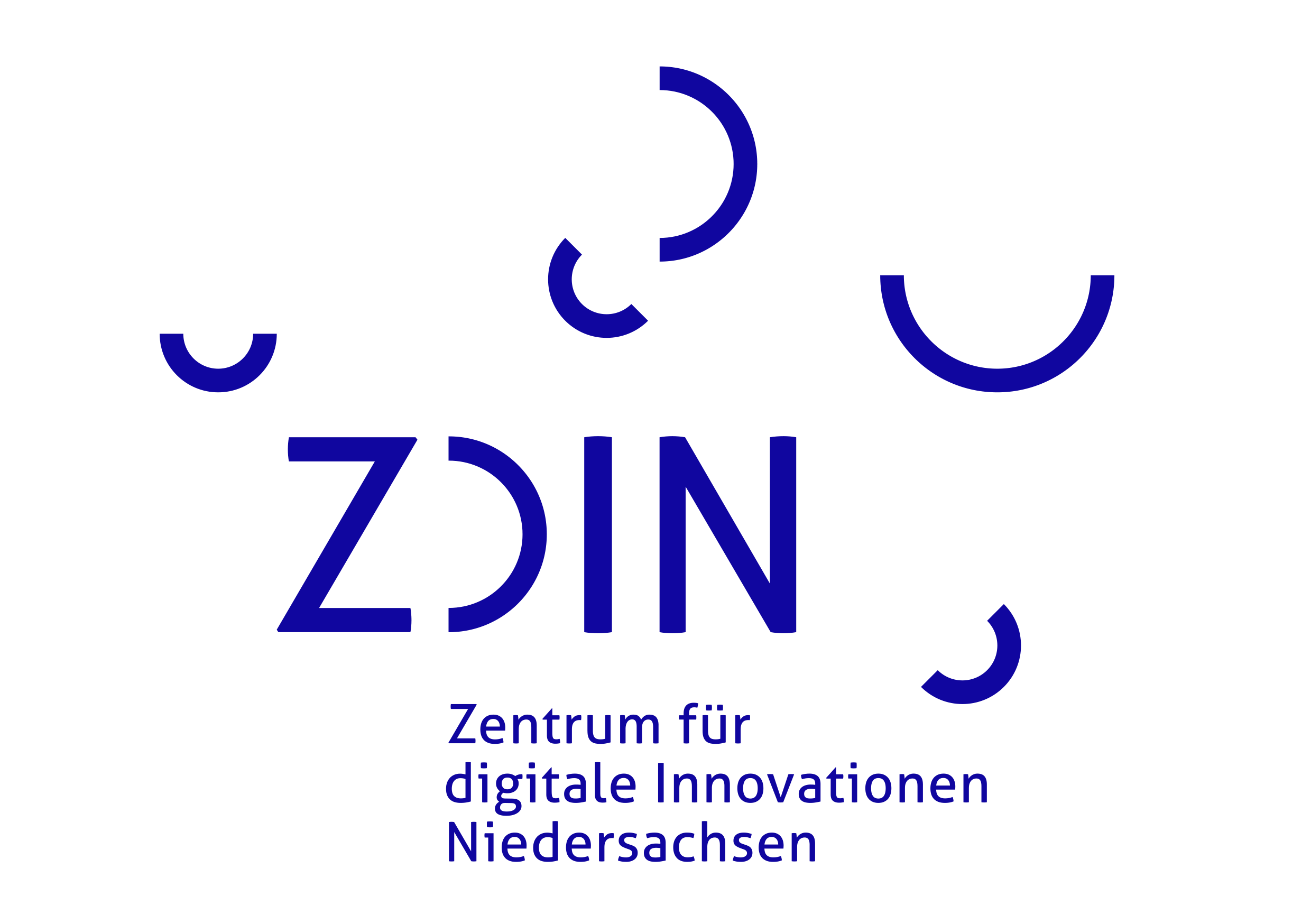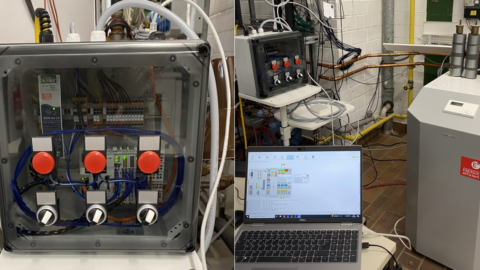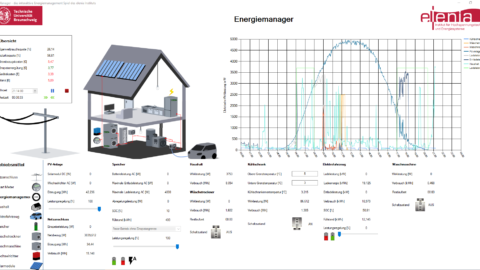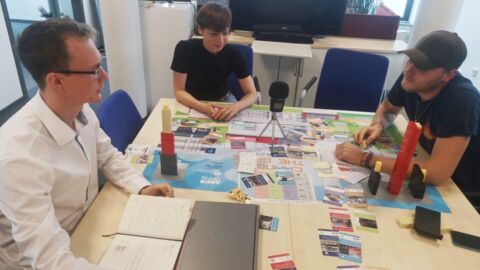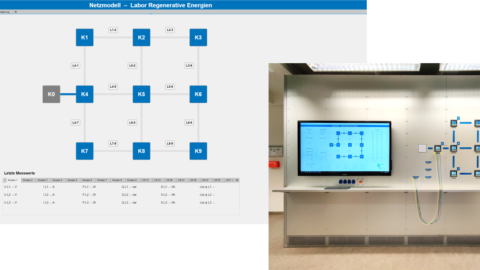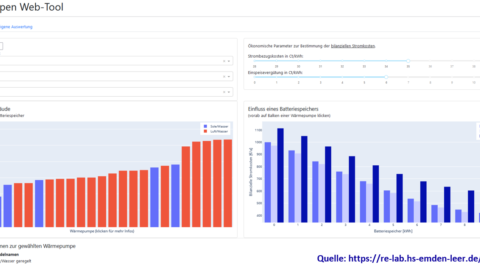ZDIN-Zahlen im Detail
Das umfangreiche ZDIN-Netzwerk aus Wissenschaft und Wirtschaft spannt sich über ganz Niedersachsen. Gemeinsam verzeichnen die Zukunftslabore und die Koordinierungsstelle beeindruckende Projekterfolge, die auf dieser Seite im Detail vorgestellt werden.
Wissenschaftliche Veröffentlichungen
While traditional cybersecurity approaches effectively address static or well-known threats, they often struggle to keep pace with the rapidly evolving threat landscape. New research highlights that i ...
While traditional cybersecurity approaches effectively address static or well-known threats, they often struggle to keep pace with the rapidly evolving threat landscape. New research highlights that increasing sophistication and dynamism in cyberattacks require adaptive and proactive measures, such as artificial intelligence (AI) applications and services, to complement conventional methods. AI for cybersecurity is needed to respond efficiently and reliably to threats and attacks, to detect dynamic threats faster, to analyze more precisely, and to enable adaptive protective measures that outperform conventional approaches. We identified research needs for AI in cybersecurity that need to be addressed by implementing respective AI applications and services. Companies and organizations need further research and company-centric approaches. We address AI for cybersecurity through a literature review and semi-structured expert interviews in a design science research–oriented framework. We identify typical implementation steps, deduce critical process phases, and develop a new process model to successfully implement AI for cybersecurity, including five process phases and 19 process steps. Our iterative five-phase process model provides a structured framework that is flexible to adapt to specific and general requirements, focuses on iterative evaluations; addresses cost, functional requirements, certifications, and environmental impact; facilitates early risk identification; and strengthens resilience against cyberattacks. Furthermore, we deduce seven key performance indicators to support a quantitative assessment of AI’s efficiency and effectiveness, allow benchmarking, and develop best practices. Finally, we provide limitations and a further research agenda.
Autor*innen
- Sarah K. Lier (Leibniz Universität Hannover)
- Prof. Dr. rer. nat. habil. Michael H. Breitner (Leibniz Universität Hannover, Institut für Wirtschaftsinformatik)
Veröffentlichung
- Im Rahmen des Buches/Journals bzw. Konferenz: Electronic Markets
- Datum: 19.06.2025
- Link zur Veröffentlichung
Cooperative algorithmic-level decompositions are a parallel computation method that executes several local algorithms. These local algorithms in turn exchange information to find better or more robust ...
Cooperative algorithmic-level decompositions are a parallel computation method that executes several local algorithms. These local algorithms in turn exchange information to find better or more robust solutions. In energy management, this paradigm is used for multi-agent systems to manage generation and/or consumption of electric power within coalitions of energy resources. The exchanged data contains operational schedules of other group members. Such data can be aggregated and exploited by agents to find better solutions and derive sensitive information. It is thus desirable to keep the data private. We apply the Paillier cryptosystem to the use case of distributed predictive scheduling in virtual power plants or energy districts. We had to extend the interaction protocol as simply securing the communication channel between the agents is not targeted for this type of algorithm. Calculations of the global objective function are now done as a joint distributed task with homomorphic encryption. We show that the privacy version has a competitive performance in terms of solution quality with only a constant increase in message exchange for larger scenarios.
Autor*innen
- Dr. Jörg Bremer
- Prof. Dr. Sebastian Lehnhoff (Carl von Ossietzky Universität Oldenburg, Abteilung Energieinformatik)
Veröffentlichung
- Im Rahmen des Buches/Journals bzw. Konferenz: Proceedings of the 16th ACM International Conference on Future and Sustainable Energy Systems
- Datum: 17.06.2025
- Link zur Veröffentlichung
Energy research software (ERS) is a central cornerstone to facilitate energy research. However, ERS is developed by researchers who, in many cases, lack formal training in software engineering. This r ...
Energy research software (ERS) is a central cornerstone to facilitate energy research. However, ERS is developed by researchers who, in many cases, lack formal training in software engineering. This reduces the quality of ERS, leading to limited reproducibility and reusability. To address these issues, we developed ten central recommendations for the development of ERS, covering areas such as conceptualization, development, testing, and publication of ERS. The recommendations are based on the outcomes of two workshops with a diverse group of energy researchers and aim to improve the awareness of research software engineering in the energy domain. The recommendations should enhance the quality of ERS and, therefore, the reproducibility of energy research.
Autor*innen
- M. Sc. Stephan Ferenz (Carl von Ossietzky Universität Oldenburg, Department für Informatik)
- M. Sc. Emilie Frost (Carl von Ossietzky Universität Oldenburg, Abteilung für Digitalisierte Energiesysteme)
- M. Sc. Rico Schrage (Carl von Ossietzky Universität Oldenburg, Abteilung für Digitalisierte Energiesysteme)
- M.Sc. Thomas Wolgast (OFFIS Institut für Informatik)
- Inga Beyers
- Oliver Karras
- M.Sc. Oliver Werth (Leibniz Universität Hannover, Institut für Wirtschaftsinformatik)
- Prof. Dr.-Ing. Astrid Nieße (Carl von Ossietzky Universität Oldenburg, Abteilung für Digitalisierte Energiesysteme)
Veröffentlichung
- Im Rahmen des Buches/Journals bzw. Konferenz: 16th ACM International Conference on Future and Sustainable Energy Systems (E-Energy '25)
- Datum: 17.06.2025
- Link zur Veröffentlichung
Reinforcement learning (RL) algorithms are increasingly used to solve the optimal power flow (OPF) problem. Yet, the question of how to design RL environments to maximize training performance remains ...
Reinforcement learning (RL) algorithms are increasingly used to solve the optimal power flow (OPF) problem. Yet, the question of how to design RL environments to maximize training performance remains unanswered, both for the OPF and the general case. We propose a general approach for automated RL environment design by utilizing multi-objective optimization. For that, we use the hyperparameter optimization (HPO) framework, which allows the reuse of existing HPO algorithms and methods. On five OPF benchmark problems, we demonstrate that our automated design approach consistently outperforms a manually created baseline environment design. Further, we use statistical analyses to determine which environment design decisions are especially important for performance, resulting in multiple novel insights on how RL-OPF environments should be designed. Finally, we discuss the risk of overfitting the environment to the utilized RL algorithm. To the best of our knowledge, this is the first general approach for automated RL environment design.
Autor*innen
- M.Sc. Thomas Wolgast (OFFIS Institut für Informatik)
- Prof. Dr.-Ing. Astrid Nieße (Carl von Ossietzky Universität Oldenburg, Abteilung für Digitalisierte Energiesysteme)
Veröffentlichung
- Im Rahmen des Buches/Journals bzw. Konferenz: 16th ACM International Conference on Future and Sustainable Energy Systems (E-ENERGY ’25)
- Datum: 16.06.2025
- Link zur Veröffentlichung
This short paper aims to shed light on the impact of malicious agents in multi-agent energy systems controlled in a decentralized fashion, and present an effective method to address this vulnerability ...
This short paper aims to shed light on the impact of malicious agents in multi-agent energy systems controlled in a decentralized fashion, and present an effective method to address this vulnerability.
Autor*innen
- M. Sc. Emilie Frost (Carl von Ossietzky Universität Oldenburg, Abteilung für Digitalisierte Energiesysteme)
- Prof. Dr.-Ing. Astrid Nieße (Carl von Ossietzky Universität Oldenburg, Abteilung für Digitalisierte Energiesysteme)
- Afia Afrin
- Omid Ardakanian
Veröffentlichung
- Im Rahmen des Buches/Journals bzw. Konferenz: Proceedings of the 16th ACM International Conference on Future and Sustainable Energy Systems
- Datum: 16.06.2025
- Link zur Veröffentlichung
Wissenschaftliche Vorträge
Referent*innen
- Sarah K. Lier (Leibniz Universität Hannover)
- Prof. Dr. rer. nat. habil. Michael H. Breitner (Leibniz Universität Hannover, Institut für Wirtschaftsinformatik)
Vortrag
- Im Rahmen der Veranstaltung: Visios4AI
- Datum: 22.09.2025
Referent*innen
- Yifan Wang
- Sarah K. Lier (Leibniz Universität Hannover)
- Prof. Dr. rer. nat. habil. Michael H. Breitner (Leibniz Universität Hannover, Institut für Wirtschaftsinformatik)
Vortrag
- Im Rahmen der Veranstaltung: Visios4AI
- Datum: 22.09.2025
Referent*innen
- Fernando Andres Penaherrera Vaca (OFFIS Institut für Informatik, FuE-Bereich Energie)
Vortrag
- Im Rahmen der Veranstaltung: Circular Economy for the Energy Transition, Summer School, Padova University
- Datum: 04.07.2025
Referent*innen
- M. Sc. Emilie Frost (Carl von Ossietzky Universität Oldenburg, Abteilung für Digitalisierte Energiesysteme)
Vortrag
- Im Rahmen der Veranstaltung: Proceedings of the 16th ACM International Conference on Future and Sustainable Energy Systems
- Datum: 18.06.2025
Referent*innen
- Dr. Jörg Bremer
Vortrag
- Im Rahmen der Veranstaltung: Proceedings of the 16th ACM International Conference on Future and Sustainable Energy Systems
- Datum: 18.06.2025
Außerwissenschaftliche Beiträge
Referent*innen
- Fernando Andres Penaherrera Vaca (OFFIS Institut für Informatik, FuE-Bereich Energie)
Beitrag
- Anlass: Kickoff Event: Entwicklung eines Konzeptes zur Reduktion der Energiekosten bei energieintensiven KMU am Beispiel von Druckguss - EKoREK
- Datum: 01.07.2025
Referent*innen
- Prof. Dr.-Ing. Astrid Nieße (Carl von Ossietzky Universität Oldenburg, Abteilung für Digitalisierte Energiesysteme)
Beitrag
- Anlass: Jahrestreffen 2025 des Forschungsnetzwerks Energiesystemanalyse
- Datum: 07.05.2025
Referent*innen
- Prof. Dr.-Ing. Astrid Nieße (Carl von Ossietzky Universität Oldenburg, Abteilung für Digitalisierte Energiesysteme)
Beitrag
- Anlass: Energie-Tagung fair:agro
- Datum: 02.04.2025
Referent*innen
- Prof. Dr.-Ing. Astrid Nieße (Carl von Ossietzky Universität Oldenburg, Abteilung für Digitalisierte Energiesysteme)
Beitrag
- Anlass: 37. Oldenburger Rohrleitungsforum
- Datum: 05.02.2025
Messebeiträge
Technologiedemonstratoren
Transfer-Workshops
The design of efficient, eco-friendly, and scalable energy systems is critical to addressing the environmental impacts of current energy practices, with renewable energy offering vast untapped potential. This workshop focuses on leveraging data-driven approaches and FAIR principles to enhance energy system innovation, addressing challenges in data availability, processing, and applications such as supply-demand predictions, predictive maintenance, and privacy-conscious analysis. With a special focus on FAIR data and the challenges and opportunities of research data and software for 2025, we invite experts from academia and industry to discuss their experiences and best practices in this domain.
Workshop
- Datum: 17.06.2025
- Ort: Rotterdam
Fort- und Weiterbildungen
Studienabschlussarbeiten
- Prof. Dr. rer. nat. habil. Michael H. Breitner (Leibniz Universität Hannover, Institut für Wirtschaftsinformatik)
- Art: Dissertation
- Themencluster: Ökologie und Nachhaltigkeit
- Datum: 29.09.2025
- Alexandro Steinert
- Prof. Dr.-Ing. Astrid Nieße (Carl von Ossietzky Universität Oldenburg, Abteilung für Digitalisierte Energiesysteme)
- Art: Bachelor
- Themencluster: Datenmanagement und -analyse
- Datum: 08.09.2025 - 08.12.2025
- Sarah K. Lier (Leibniz Universität Hannover)
- Art: Master
- Themencluster: Künstliche Intelligenz
- Datum: 20.08.2025 - 20.02.2026
- Sarah K. Lier (Leibniz Universität Hannover)
- Art: Master
- Themencluster: Künstliche Intelligenz
- Datum: 06.08.2025 - 06.02.2026
- Prof. Dr. rer. nat. habil. Michael H. Breitner (Leibniz Universität Hannover, Institut für Wirtschaftsinformatik)
- Art: Master
- Themencluster: Modellierung und Simulation
- Datum: 01.08.2025 - 01.02.2026

